The second day of the PDC revolved around the guiding principles in permaculture and becoming familiar with some of those principles such as microclimates, growth in succession, and cooperation among plants or between plants and insects in natural ecosystems.
Permaculture principles are guidelines that define a permaculture design that is respectful of all elements of an ecosystem. For that, it is essential to understand some basic notions of climate (long-term weather patterns), weather (daily or nightly changes in temperature and humidity levels). Betty was able to make what could have been a simple geography lesson into a really interesting and interactive session.
With permaculture principles in mind, Klaudia explained that designing plant or animal systems requires a specific approach where, ideally, all needs are satisfied and all outputs are limited to positive effects. A famous example to illustrate this is known as the "permaculture chicken", but we had a chance to experience with implementing a permaculture design of our own by building a hot compost later on.
For the practical hot compost session, we were joined by a number of farmers and growers from Saidoun and the village of Rimat below it. This made for a series of challenging and entertaining Q&As during the entire session, which also helped PDC participants understand the needs of farmers, while demonstrating to them the positive outputs of hot compost. With the combined efforts of Betty, PDC participants and the villagers, we raised a cubic meter of dry organic material mixed with kitchen scraps and other green "waste", as well as chicken manure to help speed up the process. After watering our creation, we let it rest and will check up on it in four days' time.
We are looking forward to tomorrow and the rest of the course, so stay tuned to discover permaculture with us.
Permaculture principles are guidelines that define a permaculture design that is respectful of all elements of an ecosystem. For that, it is essential to understand some basic notions of climate (long-term weather patterns), weather (daily or nightly changes in temperature and humidity levels). Betty was able to make what could have been a simple geography lesson into a really interesting and interactive session.
With permaculture principles in mind, Klaudia explained that designing plant or animal systems requires a specific approach where, ideally, all needs are satisfied and all outputs are limited to positive effects. A famous example to illustrate this is known as the "permaculture chicken", but we had a chance to experience with implementing a permaculture design of our own by building a hot compost later on.
For the practical hot compost session, we were joined by a number of farmers and growers from Saidoun and the village of Rimat below it. This made for a series of challenging and entertaining Q&As during the entire session, which also helped PDC participants understand the needs of farmers, while demonstrating to them the positive outputs of hot compost. With the combined efforts of Betty, PDC participants and the villagers, we raised a cubic meter of dry organic material mixed with kitchen scraps and other green "waste", as well as chicken manure to help speed up the process. After watering our creation, we let it rest and will check up on it in four days' time.
We are looking forward to tomorrow and the rest of the course, so stay tuned to discover permaculture with us.

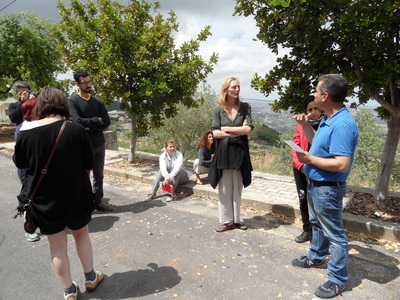
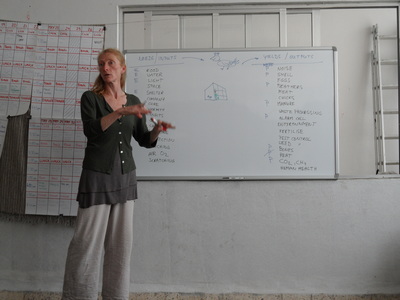
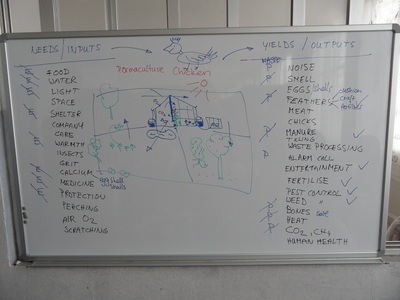
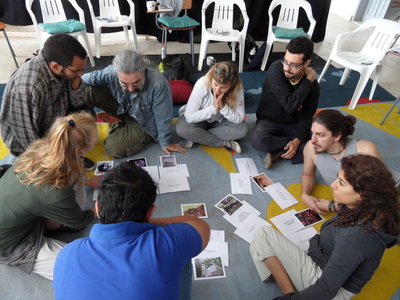

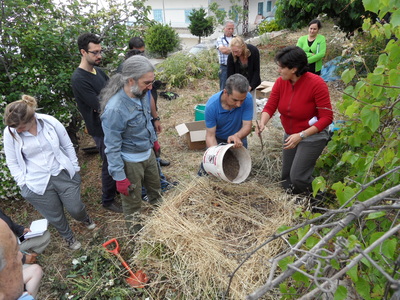
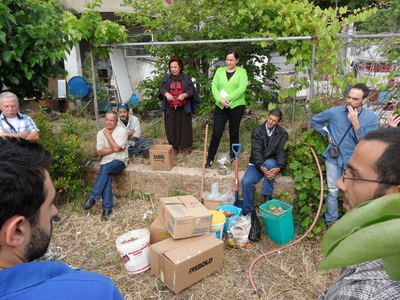
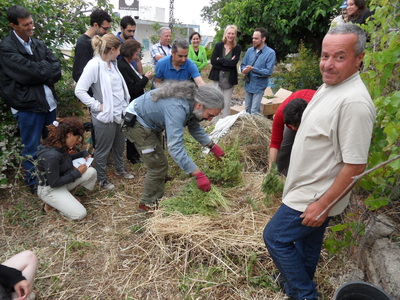
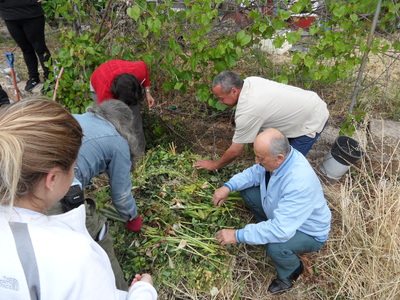
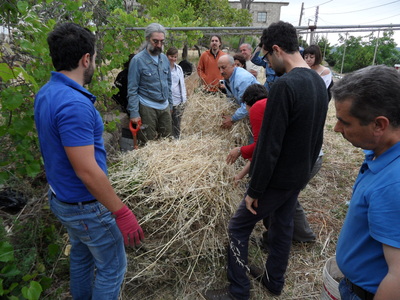
 RSS Feed
RSS Feed
